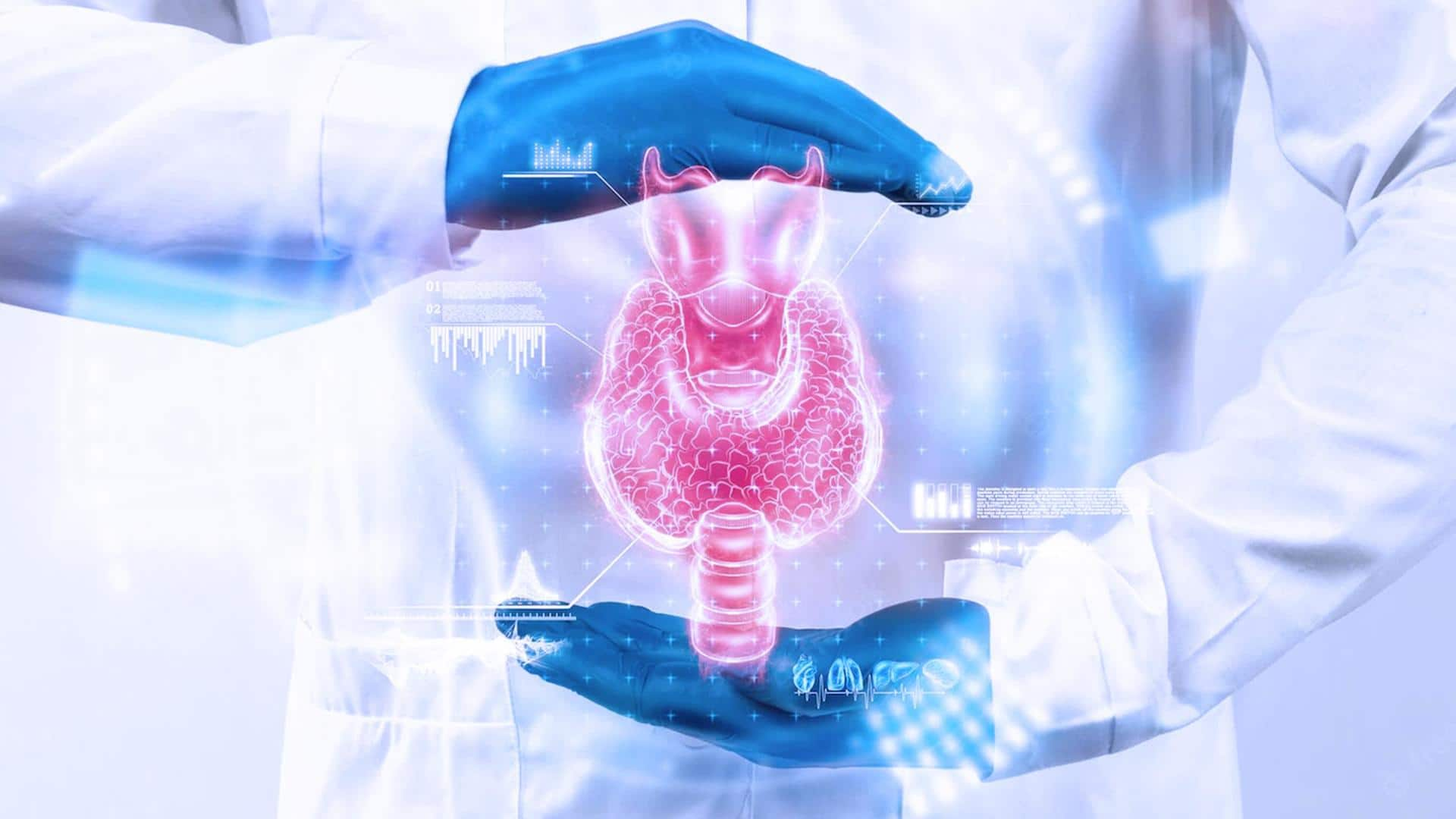
Thyroid Awareness Month: Know all about this disease here
What's the story
The thyroid is a small gland responsible for producing multiple hormones in the body. From the brain and heart to the kidneys and liver, the excess or lack of the hormones released by it can cause various grave diseases. So, to augment its awareness, diagnosis, and prevention, January is observed as Thyroid Awareness Month every year. Here's everything you should know about thyroid disorders.
Context
Here's what our expert says
Thyroid Awareness Month is observed to create awareness regarding thyroid-related disorders which when detected in a timely fashion are treatable. Early-stage thyroid cancers have a 98% cure rate with surgery and radioiodine therapy. The benign thyroid disorders that affect its hormonal function can be treated with oral medications. Surgery is done for suspicious thyroid nodules and multinodular goiter.
Placement
The thyroid is located in the front of the neck
This small gland is situated in the front of your neck and wrapped around the windpipe. It looks like a butterfly as it is smaller in the middle and has two wide wings that extend around the throat. It's a part of the endocrine system that releases hormones to control and coordinate your metabolism, growth, reproduction, stress, and mood.
Overview
Thyroid disease occurs when there's an imbalance of hormones
The main job of the thyroid gland is to produce two hormones, namely thyroxine(T4) and triiodothyronine (T3), necessary for the body to perform normally. However, when it releases either too much or too less of hormones, it leads to thyroid disease. Excess thyroid hormone is called hyperthyroidism whereas a dearth of it results in hypothyroidism. Both these health conditions require immediate medical attention.
Causes
It usually occurs when other diseases that impact the gland
Thyroid disease usually happens due to underlying medical conditions or other diseases that impact the gland. Both hyperthyroidism and hypothyroidism occur owing to different health conditions. While the former happens due to excessive iodine, nodules, or goiter (enlarged thyroid gland), the latter occurs due to iodine deficiency, Hashimoto's thyroiditis, or a non-functioning thyroid gland. People with diabetes are more prone to catching this disease.
Symptoms
Its symptoms are very similar to other health conditions
There are a host of symptoms people with thyroid disease go through, depending upon the type and intensity. People down with hyperthyroidism may experience anxiety or nervousness, sleep difficulties, weight loss, muscle weakness or tremors, vision problems, irregular menstrual periods, or sensitivity to heat. In hypothyroidism, patients experience fatigue, weight gain, forgetfulness, dry hair, hoarse voice, intolerance to cold weather, or heavy menstrual periods.
Treatment
Thyroid disease is curable with medication, beta-blockers, or surgery
While thyroid disease impacts major body functions, the good news is that it is treatable. Your doctor may prescribe you some anti-thyroid drugs to prevent or push your gland to secret hormones. Additionally, they may use beta-blockers that don't affect hormone production but help in easing out symptoms. A permanent form of treatment is surgery which is performed in more serious conditions.